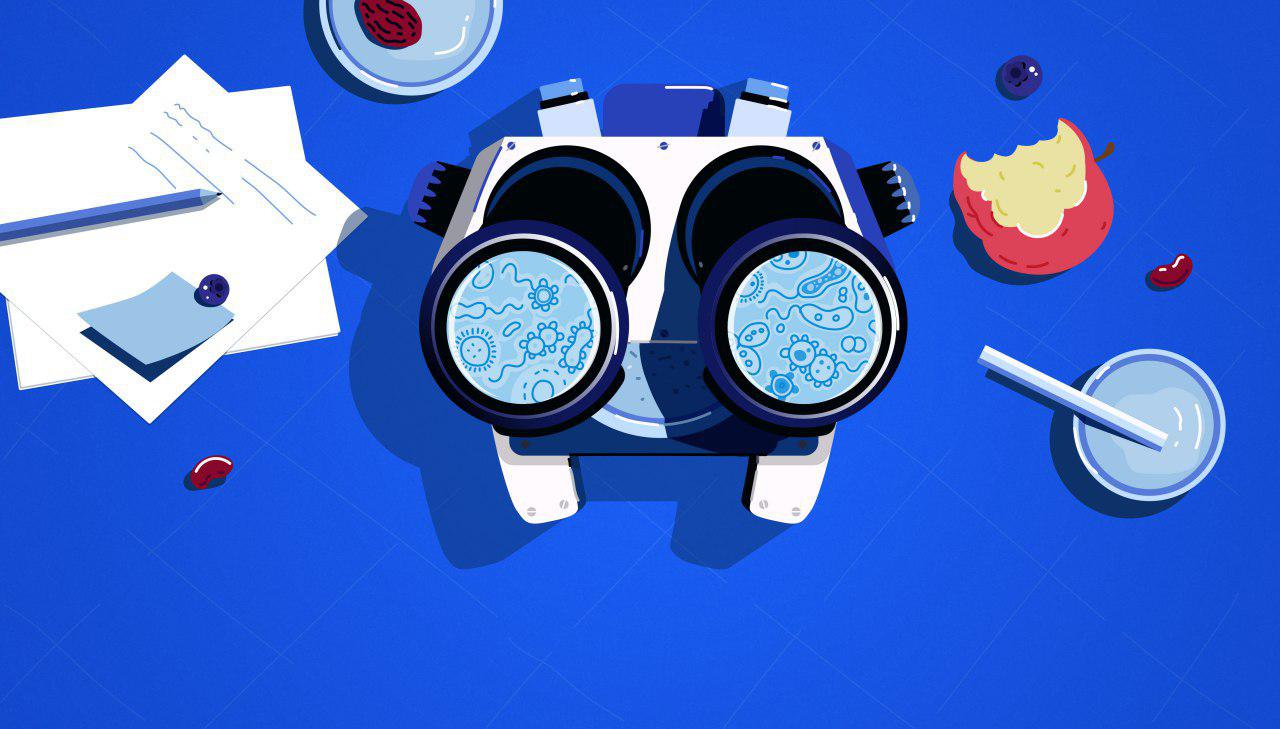Irritable bowel syndrome is a chronic bowel condition affecting as many as one in seven people. Currently, researchers are unsure what causes the condition, though it is associated with stress and dysbiosis in the gut microbiome. Let’s talk about how to keep it in check and manage symptoms.
Table of contents
- What is irritable bowel syndrome
- What provokes IBS?
- How to manage life with irritable bowel syndrome
- Tips to remember
What is irritable bowel syndrome?
Irritable bowel syndrome (IBS) is a common disorder that affects the large intestine. Signs and symptoms include cramping, abdominal pain, bloating, gas, and diarrhoea and constipation or a combination. Abdominal pain and altered bowel habits with predominantly diarrhoea are classifying as IBS-D; with constipation it is called IBS-C; with both diarrhoea and constipation it is labelled IBS-M.
Rome IV defined irritable bowel syndrome (IBS) as a functional bowel disorder in which recurrent abdominal pain is associated with defecation or a change in bowel habits.
“I used to have pains in the stomach and different gastroenterologists gave me different diagnoses. Based on these diagnoses, they prescribed me different ways of treatment from antibiotics to enema or curative fasting.” Steve, received an IBS diagnosis two years ago.
IBS is a chronic condition. Patients diagnosed with IBS are highly likely to have other functional diseases and to have undergone more surgeries than the general population. Even though there is no evidence that IBS is associated with increased mortality risk, it is better to consult with a gastroenterologist and draw up a program of actions to control symptoms.
What provokes IBS?
The exact cause of the IBS is unknown, but there are some factors that appear to play a role.
- Muscle contractions in the intestine. The walls of the intestines are lined with layers of muscle that contract as they move food through your digestive tract. Contractions that are stronger and last longer than normal can cause gas, bloating and diarrhoea. Weak intestinal contractions can slow food passage and lead to hard, dry stools.
- Nervous system. Abnormalities in the nerves in your digestive system may cause you to experience greater than normal discomfort when your abdomen stretches from gas or stool. Poorly coordinated signals between the brain and the intestines can cause your body to overreact to changes that normally occur in the digestive process, resulting in pain, diarrhoea or constipation.
- Inflammation in the intestines. Some people with IBS have an increased number of immune-system cells in their intestines. This immune system response is associated with pain and diarrhoea.
- Severe infections. IBS can develop after a severe bout of diarrhoea (gastroenteritis) caused by bacteria or a virus. IBS might also be associated with a surplus of bacteria in the intestines (bacterial overgrowth).
- Changes in bacteria in the gut (microflora). Microflora is the “good” bacteria that reside in the intestines and play a key role in health. Research indicates that microflora in people with IBS might differ from microflora in healthy people.
There are also risk factors that can aggravate the situation. It is known that many people have worse IBS symptoms when they eat or drink certain foods or beverages, including wheat, dairy products, citrus fruits, beans, cabbage, milk, and carbonated drinks. Increased stress and hormonal changes can make IBS symptoms worse though none of them cause IBS itself.
How to manage life with irritable bowel syndrome
People suffering from IBS should find their own best way of managing their life in the long run.
“One of the hardest things is that I have to be on alert every day. In some cases, I already know that this particular food, drink or time of the year can make my symptoms worse. In other cases those patterns do not work,” says Steve, a man who got an IBS diagnosed two years ago and has tried to improve his condition since.
Though irritable bowel syndrome can’t be cured, there are treatments to relieve its symptoms. Here are four main directions of treatment that can be mixed and matched.
💊 Pharmacological treatments approved for certain people with IBS include:
- antidiarrhoeal drugs that help control diarrhoea, reduce cramping and stomach pain
- antispasmodic drugs that reduce muscle contractions and fluid secretion in the intestine, and increase muscle tone in the rectum
- laxative treatment that help control constipation
- antibiotics decrease bacterial overgrowth
Any medicine should be taken only after consultation with a doctor.
🧠 Psychological treatments have been proposed as viable alternatives or compliments to existing care models. Consider them if you do not respond to pharmacotherapy for a period of 12 months and if the symptom profile continues. The most studied and used forms of psychological treatment for IBS are relaxation training, brief psychodynamic psychotherapy, CBT, hypnotherapy and several forms of self-help. Give more attention to these forms of treatment if psychological factors trigger IBS in you.
🏃♀️ Lifestyle management. Common rules are: exercise regularly and get enough sleep. Experiencing IBS might lead to worrying about its symptoms, consequences, and duration, anxiety, depression, stress, shame and anger. Sometime these psychosocial phenomena may act as stressors and contribute to IBS. Lifestyle management like exercise (training as well as meditation and yoga) and good sleep helps to balance your psychological condition.
🍎 Microbiome-based treatments. There are up to 100 trillion microorganisms that inhabit the human gastrointestinal tract, most of which are in the distal small bowel and colon. Those microorganisms are called microbiome. It is known that the microbiome affects IBS symptoms. For example, recent work using 16S rRNA sequencing and machine learning has found a gut microbiome signature which has been identified with severe IBS. Studies have found that patients with IBS have higher bacterial counts in the proximal small intestine by quantitative culture than healthy controls.

This means that you can adjust your diet to balance your microbiome and relieve IBS symptoms. Some common rules of dietary management are to avoid foods that trigger your symptoms, eat high-fiber foods, drink plenty of fluids. Advanced options that might help including taking prebiotics, probiotics or antibiotics; diet; or faecal microbial transplantation. Ask a gastroenterologist if these options might be right for you.
“IBS is often accompanied by SIBO (small intestinal bacterial overgrowth). In this case, limit consumption of oligosaccharides which can be found in most fruits. Eat more soluble gelling fibers, for example, Ispaghula (psyllium) husk.” Ann Popenko, PhD, bioanalyst, head of scientific research at Atlas Biomed.
Tips to remember
- Exercise regularly and ensure that you are getting sufficient sleep
- If you don't respond to pharmacological, lifestyle or dietary interventions after 12 months, consider psychological treatments like CBT
- Keep a food diary and make a note of what aggravates your symptoms
- Experiment and combine different treatments, testing which works best for you

- Irritable bowel syndrome: diagnosis and treatment
- Optimum dosage of ispaghula husk in patients with irritable bowel syndrome: correlation of symptom relief with whole gut transit time and stool weight
- Psyllium Fiber Reduces Abdominal Pain in Children With Irritable Bowel Syndrome in a Randomized, Double-Blind Trial
- Rome Criteria and a Diagnostic Approach to Irritable Bowel Syndrome
- Small Intestinal Bacterial Overgrowth (SIBO)
- The epidemiology of irritable bowel syndrome
- The gut microbiome and irritable bowel syndrome
☝️DISCLAIMER☝This article is for informational purposes only. It is not intended to constitute or be a substitute for professional medical advice, diagnosis, or treatment.

















